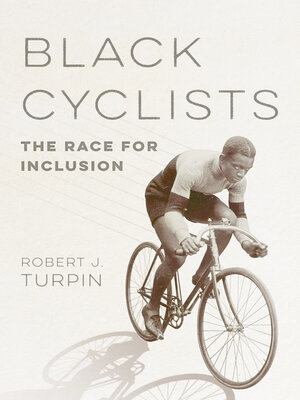
Sign up to save your library
With an OverDrive account, you can save your favorite libraries for at-a-glance information about availability. Find out more about OverDrive accounts.
Find this title in Libby, the library reading app by OverDrive.



Search for a digital library with this title
Title found at these libraries:
| Library Name | Distance |
|---|---|
| Loading... |
Cycling emerged as a sport in the late 1870s, and from the beginning, Black Americans rode alongside and raced against white competitors. Robert J. Turpin sheds light on the contributions of Black cyclists from the sport's early days through the cementing of Jim Crow laws during the Progressive Era. As Turpin shows, Black cyclists used the bicycle not only as a vehicle but as a means of social mobility—a mobility that attracted white ire. Prominent Black cyclists like Marshall "Major" Taylor and Kitty Knox fought for equality amidst racist and increasingly pervasive restrictions. But Turpin also tells the stories of lesser-known athletes like Melvin Dove, whose actions spoke volumes about his opposition to the color line, and Hardy Jackson, a skilled racer forced to turn to stunt riding in vaudeville after Taylor became the only non-white permitted to race professionally in the United States. From the Outset
The Mode of Liberation
Drawing the Color Line
In Response to the Color Line
The New Woman
Six Days in a Row
Going Abroad
Home Trainers and Vaudeville
Once Was Lost
Eye-opening and long overdue, Black Cyclists uses race, technology, and mobility to explore a forgotten chapter in cycling history.
|Acknowledgments
Introduction
Epilogue: Born Again
Notes
|Robert J. Turpin is an associate professor of history and the assistant director of the honors program at Lees-McRae College. He is the author of First Taste of Freedom: A Cultural History of Bicycle Marketing in the United States.







